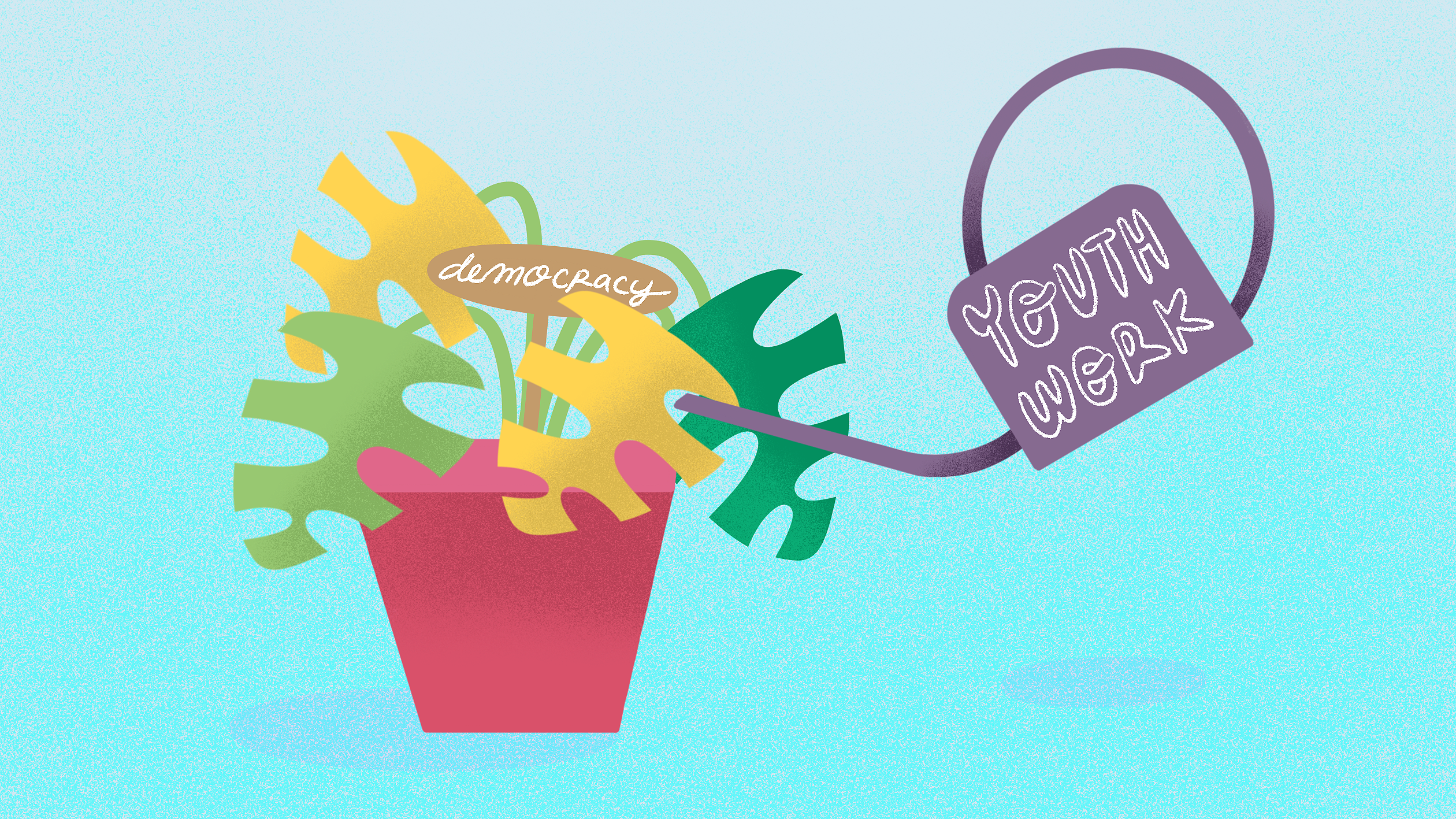
Illustration by Daniela Nunes
Local youth work acupunctures to revitalise democracy!
Inspiring local youth work initiatives within the Democracy Here | Democracy Now campaign
by Silvia Volpi
 Background information on Democracy Here | Democracy Now campaign
Background information on Democracy Here | Democracy Now campaign
On 21 March 2022 the Council of Europe launched the Democracy Here | Democracy Now campaign for revitalising democracy and strengthening mutual trust between young people and democratic institutions and processes. The campaign focused on access to human rights, meaningful youth participation and the impact of digitalisation as factors of democratisation. It was based on activities undertaken with young people and youth organisations at local, national and international levels.
Local youth work acupunctures to revitalise democracy!
In this article, you will have the opportunity to get some inspiration from innovative and specific initiatives implemented at local level. The projects we will talk about are like localised acupunctures with the aim of revitalising, renovating, enhancing and improving democratic systems and citizens’ lives.
 The European Youth Foundation support to local initiatives
The European Youth Foundation support to local initiatives
What is the European Youth Foundation? 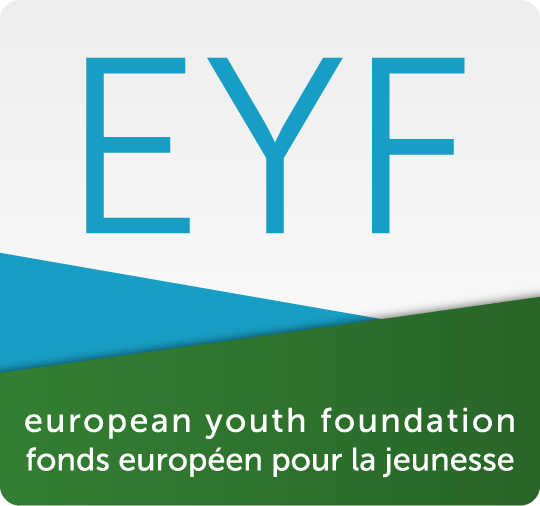
The European Youth Foundation (EYF) is a fund established in 1972 by the Council of Europe to provide financial and educational support for European youth activities. The EYF is part of the Youth Department of the Council of Europe’s Directorate of Democratic Participation, Directorate General of Democracy and Human Dignity. Its grant programme is based on the priorities of the youth sector of the Council of Europe. It promotes the values, principles and work of the Council of Europe and it supports activities that strengthen peace and co-operation among young people and encourage networking, mutual support and learning.
The European Youth Foundation and the Democracy Here | Democracy Now campaign
Within the 2022 youth campaign Democracy Here | Democracy Now, the EYF has supported, in 2022, seven international activities and 34 pilot activities. Out of the 34 pilot projects, 15 applicants have their first approved project with the EYF, which shows that the special call attracted new organisations. Twenty-five projects address the theme of meaningful youth participation, while 11 address the theme of access to rights and eight the theme of digitalisation.
Beyond the three thematic areas of the campaign, several issues emerged from the projects such as the rise of the far right, the questions related to peace, war and reconciliation, attacks on gender, the situation of rural youth in Europe and local youth participation, especially in decision making.
 Local youth work inspiring initiatives
Local youth work inspiring initiatives
In this article, you will have the opportunity to discover more about eight projects out of the 34 pilot projects which may inspire your local youth work! Each project is described in two main sections:
- The project idea and innovation, which gives an account of the main aims and activities of the project, the innovativeness of the activities, methodologies and approaches implemented; and
- Tips for youth workers which offer suggestions on what youth workers should consider if they want to reproduce the initiative in their context.
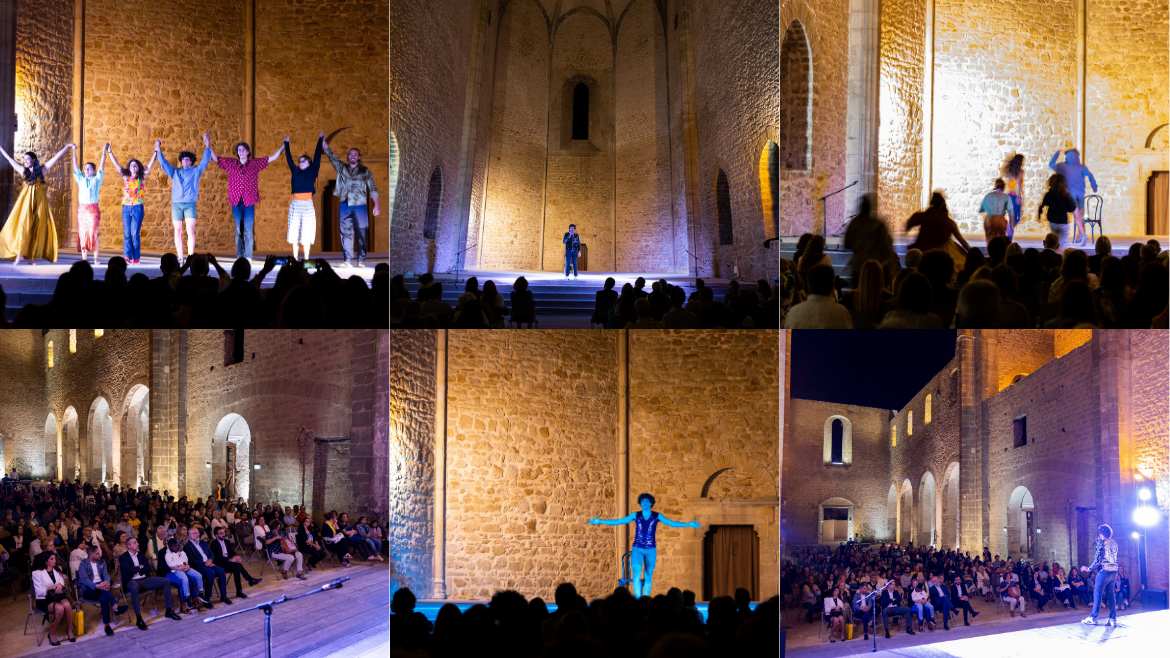
Theatre for Democracy – Looking for the roots Raizes, Italy
The project idea and innovation
The project is in line with the organisation’s mission and had the goal of recovering local democratic participation through cultural participation.
The question the organisers asked themselves was: how can the arts help us in the revitalisation of democracy in Palermo, where there is a little awareness of human rights and little participation in democratic life?
Specifically, the tool used to revitalise democracy was theatre, which is understood as a community where respect for the other and for the other’s point of view is necessary.
Sixteen participants were selected: 12 participants from Palermo and 4 international participants with strong Sicilian roots. With this group, the Greek roots of Sicilian theatre were explored, and specifically, the participants tackled the story of Antigone. During the weeks of training, the participants translated the story of Antigone into a contemporary story, bringing the characters up to date and making links with human rights and democracy concepts.
Thanks to the initial training course, the participants were able to create a performance and four campaigns that were shown in Palermo in September 2022.
The project can be identified as “The creativity of taking responsibility – The responsibility of being creative”, where the arts raise awareness and stimulate responsibility to live together in respect for human rights and democracy.
Innovation can be defined in three words: roots, intercultural dialogue, emotions.
Before defining the objectives of the project, the organisers investigated the cultural roots of the place, the roots that could awaken a sense of belonging and a sense of community in the actors and spectators.
The participants used their mother tongue in the performances, and this gave rise to an intercultural, multilingual dialogue, where communication passed not only through verbal channels but also through non-verbal and paraverbal channels.
The emotions (such as anger) brought to the city’s square, where the performances were staged, had a cathartic effect on the audience who recognised themselves in the story and saw themselves represented.
Tips for youth workers
If you are aiming to use theatre or performative arts in your local project, you need to consider identifying:
- the cultural roots of the place of reference to awaken a sense of belonging, of community. You might start, for example, from dialects, local songs and local myths;
- the project idea to be proposed, linking it to universal themes such as the protection of human rights and democracy;
- the objectives of your project, which should be based on the roots and needs of the place and of the community.
Democracy here. Democracy now. Voices of Young People in Ukraine Donetsk Youth Debate Centre, Ukraine
The project idea and innovation
The idea of the project was to talk about the needs and concerns of young people during the war crisis in Ukraine, to make the voices of young people heard and to create space for young people to express and share. It was also about influencing those involved in the youth field in Ukraine to react to the needs of young people.
The organisers collected stories from young people in Ukraine and used them to advocate for the rights of young people, including with local authorities. The project included a training course for 30 young people from the five regions, a collection of stories from those regions of the training participants, a social media takeover and a final evaluation meeting.
The project’s methodology was based on mutual sharing, learning and creation. It used non-formal education methods to create a safe atmosphere for mutual learning and the sharing of experience. During the training course young people shared how the war had influenced them, how their life had changed and how the lives of young people have changed. The elements and methodology used within the training supported the development of solidarity and peer support among the participants; assisted skills development in advocating the interests and concerns of young people during wartime; skills in video taking and recording the story on a sensitive topic; development of the concept of the advocacy campaign; and supporting self-care and resilience of young people. Peer support and work in community teams was an important element of the project. At the same time, young people highlighted the great value of sharing with young people from different regions.
Tips for youth workers
If you are aiming to implement a similar project, you need to consider:
- involving young people in the planning stage of the project to meet their needs and interests. It is possible to involve a variety of young people in a project if they are interested and motivated and if they feel the ownership of the project;
- at the beginning of the project, communicating with local authority representatives so that they know about the initiative from the very beginning;
- working on a communication strategy, identifying how to communicate work results and how to inform stakeholders about the process and results of the project.
Perspectives of Gender and LGBTIQ+ Youth Movements Association for Educational Development Ekvalis, North Macedonia
The project idea and innovation
The need to implement this project came from several years’ experience that Ekvalis had in working with LGBTIQ+ youth. The organisation identified a major democratic decrease in access to rights for these communities. More specifically, they were witnessing new, more organised ways to attack their work, discredit LGBTIQ+ activists, and spread hate and humiliation.
Through this project Ekvalis enabled 20 young people from North Macedonia (who identify as queer people, non-binary youth and women from ethnic minorities) to recognise the harmful ways in which the anti-gender movement has been portraying the communities that they are part of. The young people have been trained on how to respond non-violently to anti-gender movements, to transform harmful narratives, to work with media and create positive narratives for the communities and, most importantly, to secure a place in the queer movement, as we had noticed a lower ratio of young people who were participating as active contributors in these movements.
Within the project, Ekvalis implemented training for activists which was based entirely on non-formal education methods. In the later stages of the project the participants fully participated in the co-creation of three follow-up actions at national level.
To understand the context in which the anti-gender movements operate, the participants used multiple case studies and scenarios, researched the methods and mechanisms used by the anti-gender movement and created strategies on how to respond non-violently, based on facts.
Some sessions were dedicated to activists’ resilience and self-care to empower individuals and, consequently, the sustainability of these movements.
Upon completion of the training, Ekvalis provided mentoring support for the participants to implement the follow-up actions from the project. The mentoring system that Ekvalis created has proven to be very successful, as participants are then able to work with mentors in smaller groups and sometimes even individually.
Tips for youth workers
If you are aiming to implement a similar project, you need to consider:
- understanding the complexity of democracy and the people who participate in building a more democratic society. Without including marginalised communities such as women, LGBTIQ+ communities or ethnic minorities, there will never be a true representative vision of what a democratic society will look like;
- creating projects and work with youth that strengthen the collective efforts for democracy improvement that already exist in the country;
- opening up conversations that seem controversial or even taboo despite the risk that the society might not be ready for such conversations. The true essence of democracy is to make our communities grow and expand in terms of how they accept other members of their community who are underprivileged. Silence is never the answer to approach this state of acceptance.
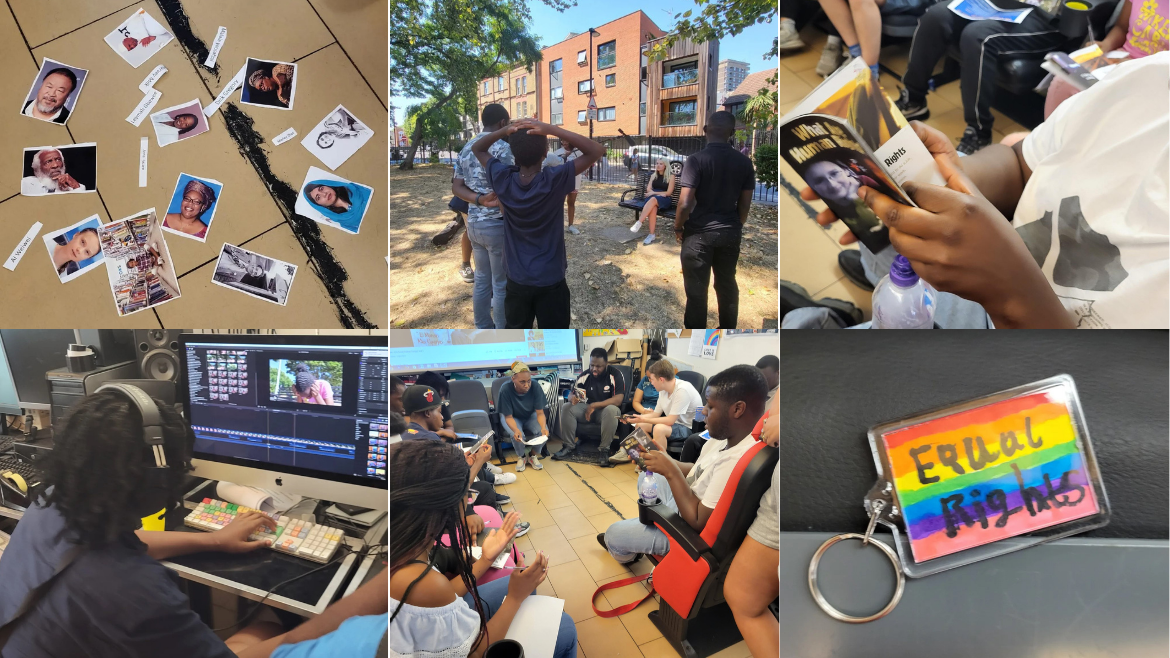
Be The Change Mouth That Roars, United Kingdom
The project idea and innovation
Be The Change came about because Mouth That Roars wanted to re-engage young people, particularly young people already marginalised in their communities, in understanding what democracy should look like and how they can engage positively in processes that can help enhance everyone’s chances of a fulfilling life. The project engaged 10 young people in a series of six workshops to learn about democratic processes and to develop social media content which was compiled in a “digital media campaign webpack”, which is the main project output.
Mouth That Roars is a youth media organisation – they use participatory film and creative media making as a tool to reflect on issues that concern young people and which impact on their lived experience; and enables their voices to be heard. Their guiding principle is “Often it is those we least expect to have an opinion, who actually offer the most thought- provoking and challenging perspective on the world.”
Be The Change used various digital media processes to engage young people and enable them to reflect on the power of media, to learn about the project themes of democracy, human rights and activism and produce media that reflects their learning.
Young people have produced a Be The Change webpack that includes the educational material used during workshop sessions and the creative media produced by them, so that other youth practitioners can run their own democracy education programmes with other young people.
Tips for youth workers
If you are aiming to implement a similar project, you need to consider:
- using the Be The Change webpack;
- how young people are engaged within your organisation or projects. How involved are young people in running things? Do your staff and volunteers represent young people’s lived experience? What opportunities are there for young people to make decisions, however small, on a day-to-day basis? Who has the power?
- letting young people learn and act for democracy and human rights.
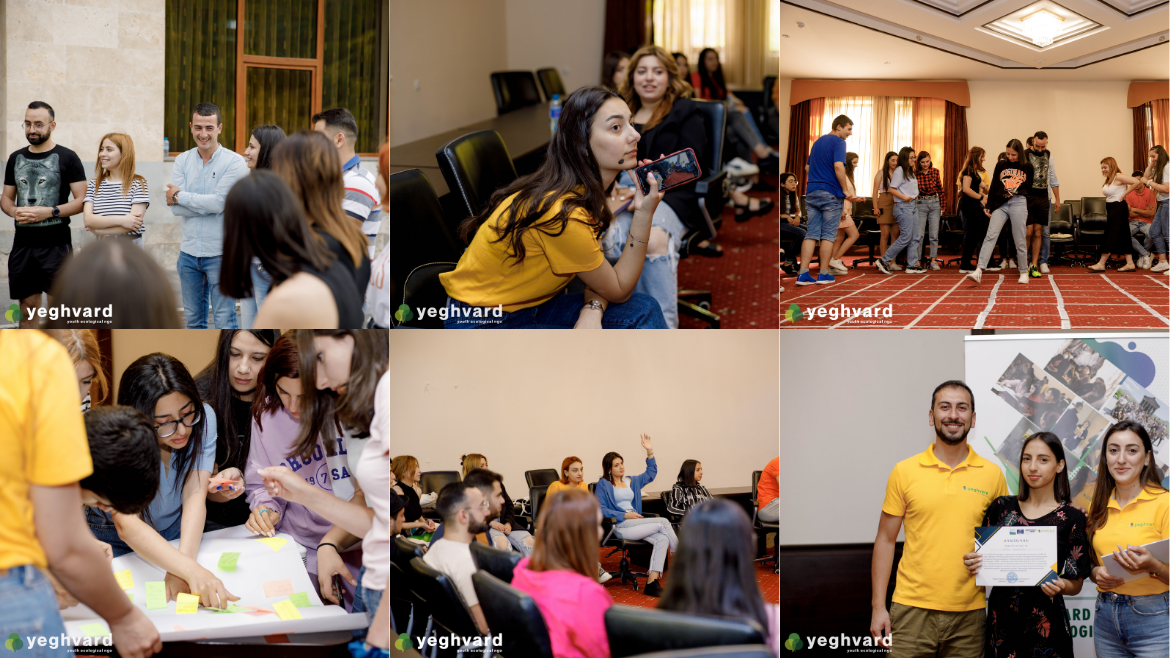
DEMO – Democratic values and media literacy for youth Yeghvard youth ecological NGO, Armenia
Project idea and innovation
The main purpose of implementing this project was to scale up the media literacy competences of the participants to strengthen their civic and politically meaningful democratic participation based on informed decision making, as well as to widen their understanding of the differences between freedom of expression and hate speech. Currently, information disorder and widespread hate speech practices, especially online, are jeopardising the democratic performance of Armenia, downgrading quality journalism, and provoking societal fragmentation and polarisation. As a result of these challenges and negative trends, young people are alienating themselves from politics and democratic procedures, losing trust in government and local authorities, thus hindering the country’s overall democratic performance.
The project responded to these challenges by organising a six-day training camp for 30 young people on democracy, freedom of expression and media literacy, followed by 10 local meetings with young people across Armenia, delivered by participants of the training.
The entire process was based on experiential learning and supported young people in taking ownership of the learning process and in co-creating tools and methods such as social videos tackling hate speech and a card game on democracy, media literacy and freedom of expression.
Tips for youth workers
If you are aiming to implement a similar project, you need to consider:
- creating effective platforms that will ensure young people’s meaningful participation at local and national levels;
- fostering co-operation between youth and their local authorities, thus ensuring their engagement in decision making and policy drafting.
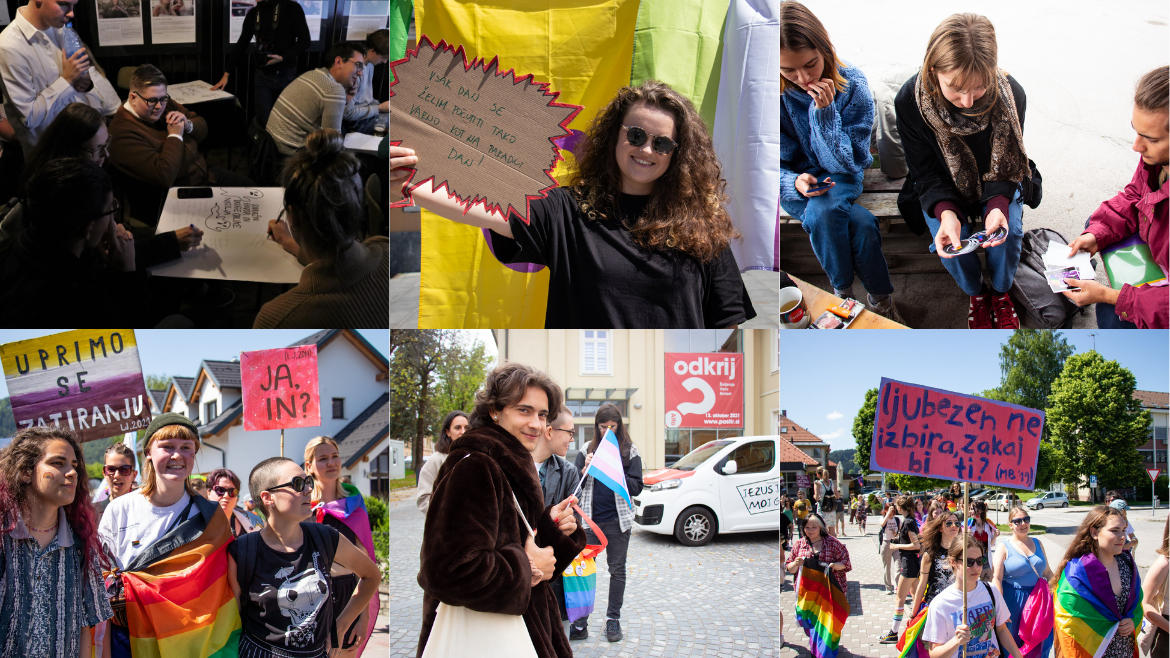
My Rainbow Vote: Mobilising Young Rainbow Voters Društvo Parada ponosa, Slovenia
Project idea and Innovation
In 2022, Slovenia faced three elections: parliamentary elections which happened in April, presidential elections in October and local elections in November. The government, which was in power until April 2022, systematically attacked human rights and censored and attacked the media. Anti-LGBTIQ+ rhetoric was being used by those in power and LGBTIQ+ youth felt the direct consequences. Furthermore, according to recent studies 60% of young people aren’t attending parliamentary elections and 15-29-year-olds are less politically active than people in this age range were 10 years ago. Due to all this, Društvo Parada ponosa felt like it was necessary to start addressing the challenges to democracy, the rule of law, as well as to inform and empower young LGBTIQ+ people. Therefore, the aim of the project My Rainbow Vote was to inform, empower and mobilise young LGBTIQ+ people to demand their rights from future decision makers.
The project organised six workshops as a facilitated conversation between young LGBTIQ+ voters and decision makers and a digital and live poster campaign for six months.
Within the project, a peer-to-peer approach worked best when it came to raising awareness, informing and empowering young people. Therefore, young people were an integral part of every stage of the project. By doing this, the content created mattered to them, their needs were recognised and the language spoken was understood. The latter has proven to be particularly important when discussing topics like political participation and elections.
How often do we see images of young, especially young LGBTIQ+ people, calling on the public to go and vote? Usually it’s images of middle-aged cis-men and women pointing the finger at young people for not voting, for not being politically active. Not to mention the language being used when reporting about politics in public discussions, as well as pre-election debates. Therefore, the workshop about the local electoral system was carried out by two young law students who not only managed to convey the knowledge in an understandable way but also managed to inspire the participants of the workshop to think of themselves as the engines of change that they want.
Tips for youth workers
If you are aiming to implement a similar project, you need to consider:
- how we can make elections sexy, meaning: how can you make topics that young people perceive as boring, more interesting;
- involving young people and young specialists in all the steps of your project;
- the format of traditional discussion activities among young people is passé.
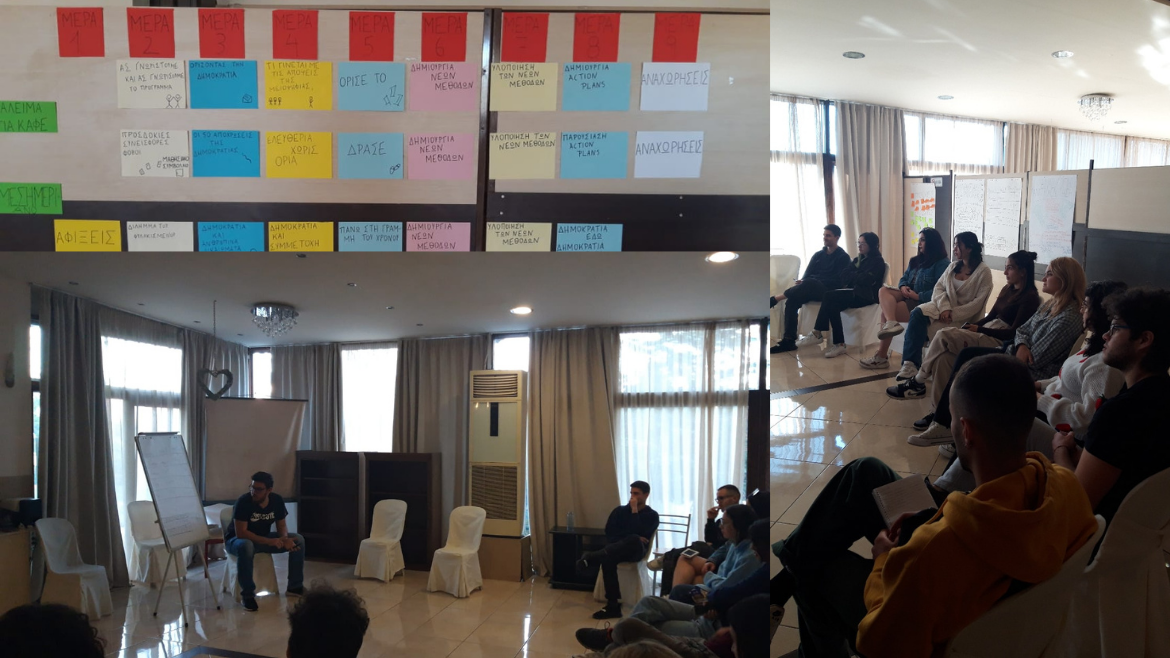
Democracy Here: The Far Right and Us! Youth Empowerment Centre, Greece
Project idea and innovation
The Youth Empowerment Centre believes that the fight against far-right rhetoric, parties and movements is an ongoing process that should never stop and only through education is it possible to become capable of properly addressing it, especially for the younger generations.
The youth work field needs to intervene and establish a proper framework of democratic education that will permit youth workers to boost their understanding of the young people they are working with about the dangers that this political space is causing. Democracy Here: The Far-Right and Us! project had the purpose of opening up a discussion on the subjects of democracy, democratic processes and the far-right political space, and how the rise of the latter is affecting the other two.
The main activity of the project was a training course that engaged 20 youth workers, trainers and educators, who are now able to work as multipliers on democracy and democratic processes. Additionally, it created an e-book that contains, above all, new educational methods to address the topics of the project.
Tips for youth workers
If you are aiming to implement a similar project, you need to consider:
- carefully observing the social community you are working with and the existing dangers that democracy is facing;
- adapting the methodologies and approaches to your target group, their needs and profile.
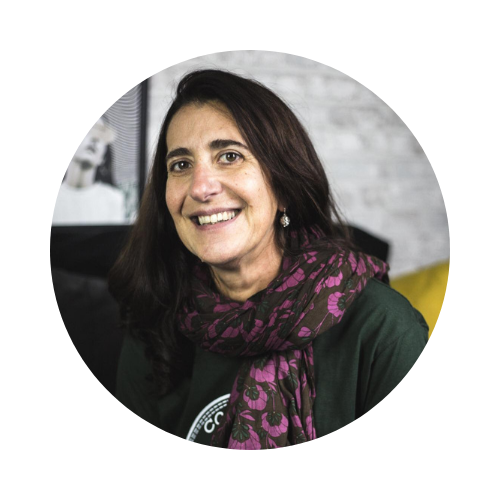
Silvia, from Italy, is a facilitator of non formal learning processes at Rete Educare ai Diritti Umani.


